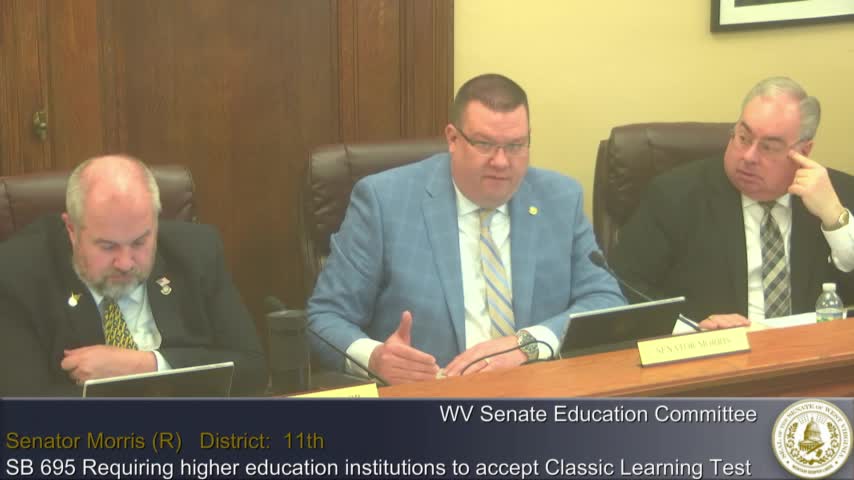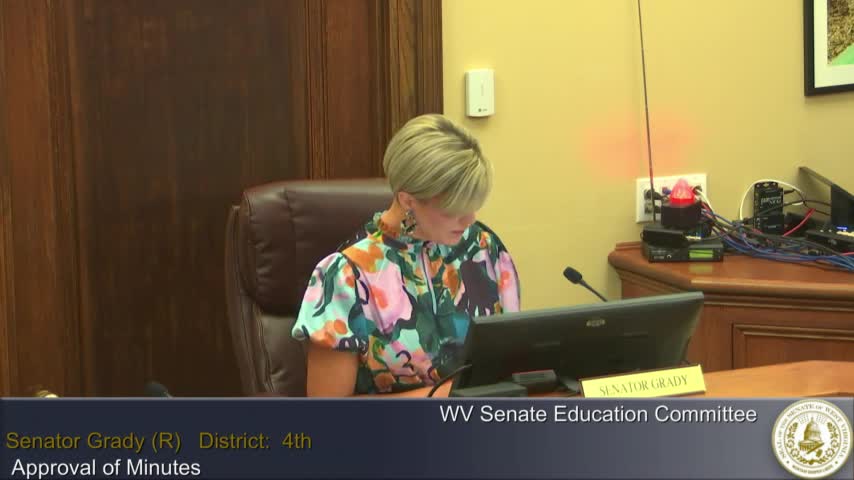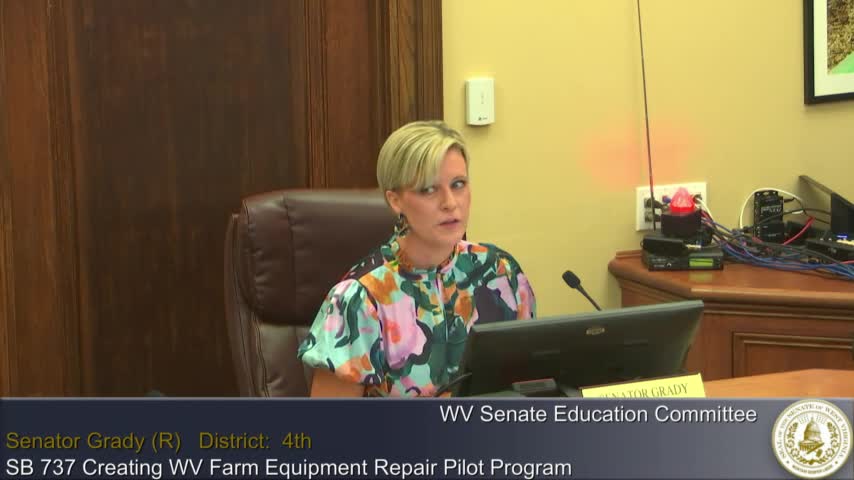Article not found
This article is no longer available. But don't worry—we've gathered other articles that discuss the same topic.

Senate panel advances bill requiring computer science credit for graduation

Senate committee advances farm equipment repair pilot, narrows manufacturer obligations

Senate committee delays vote on allowing Classic Learning Test for college admissions

